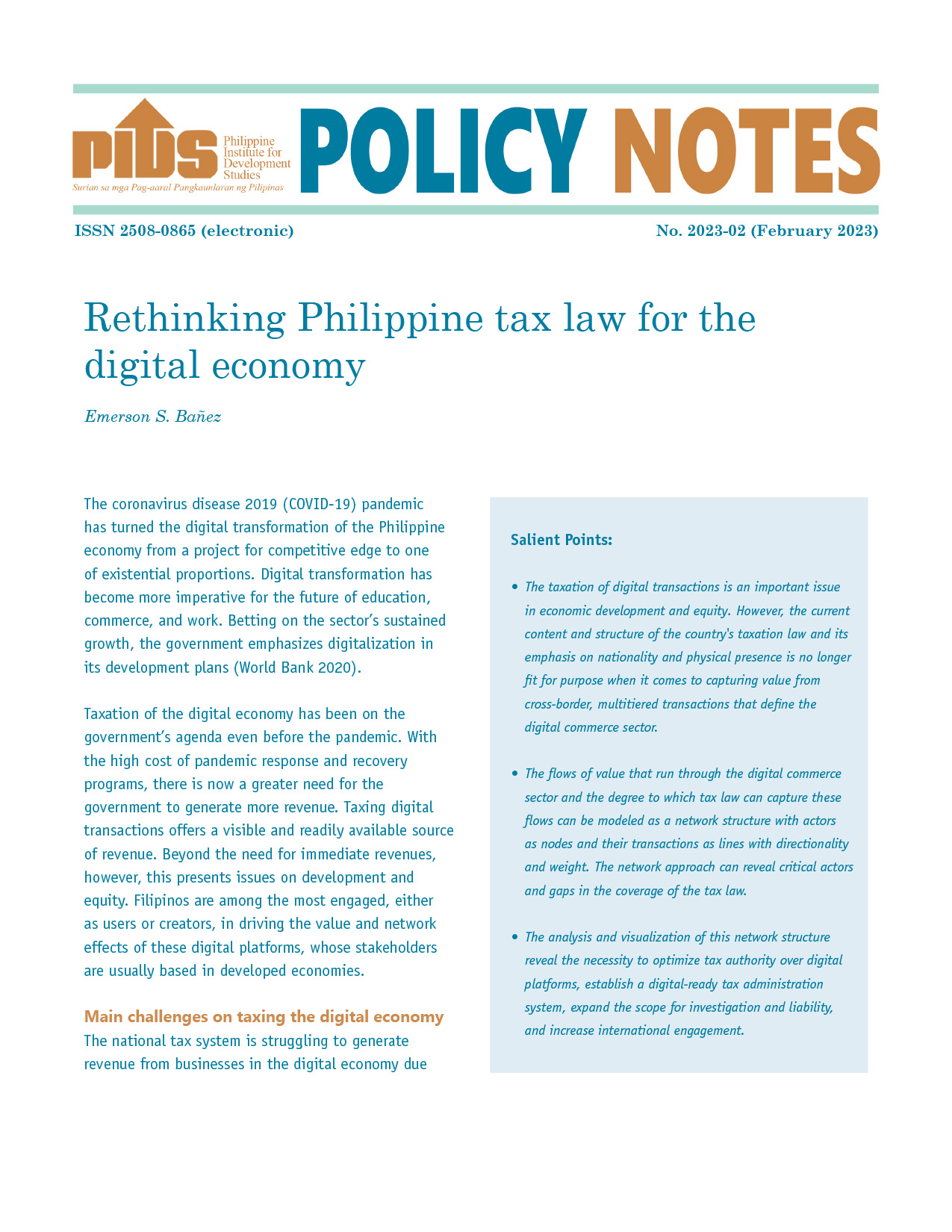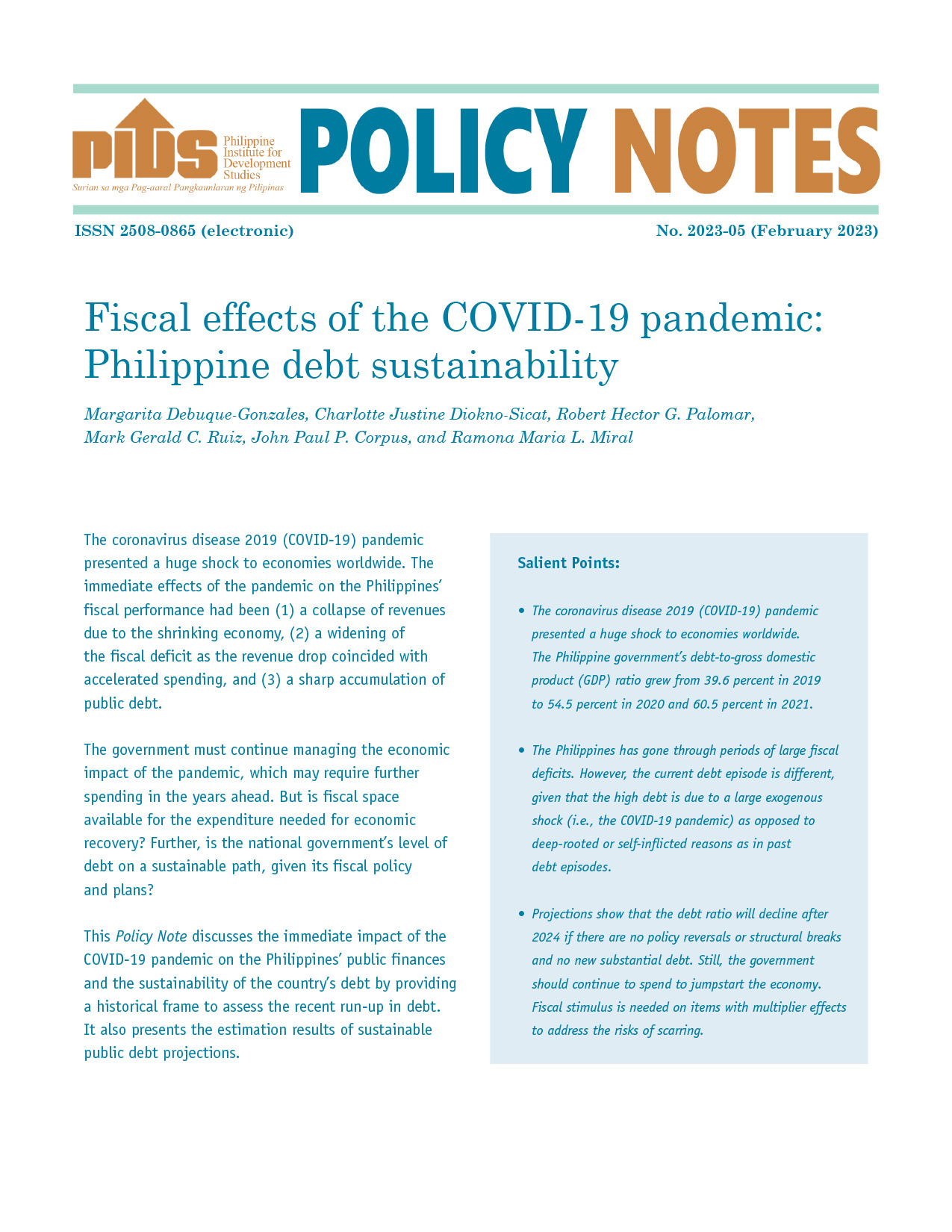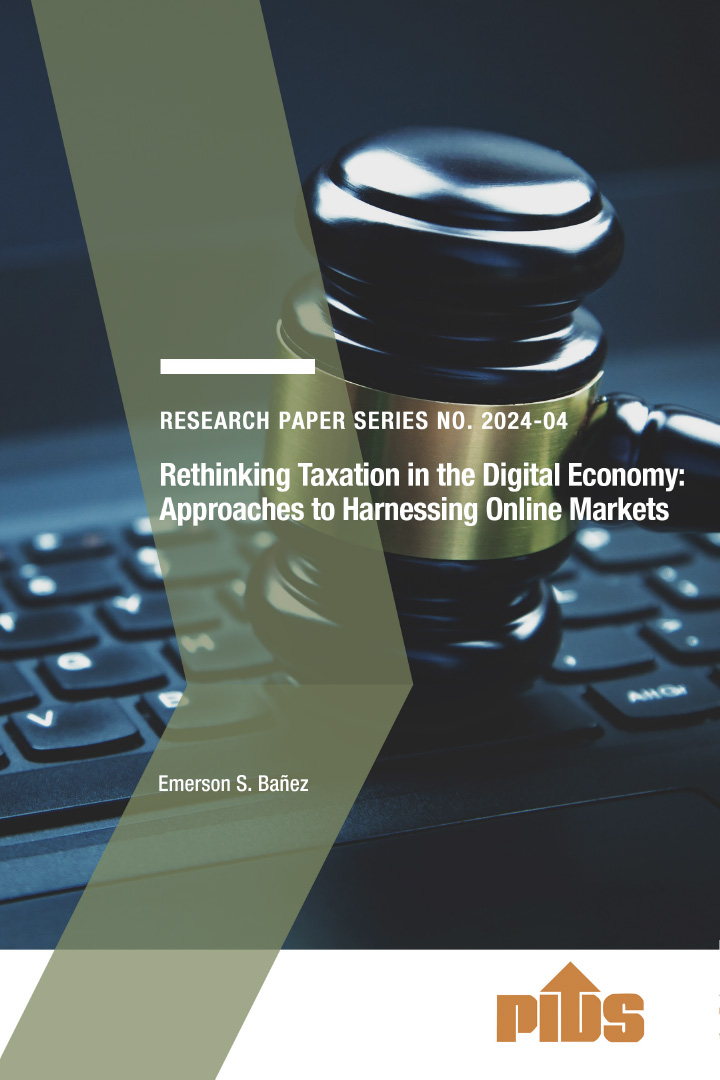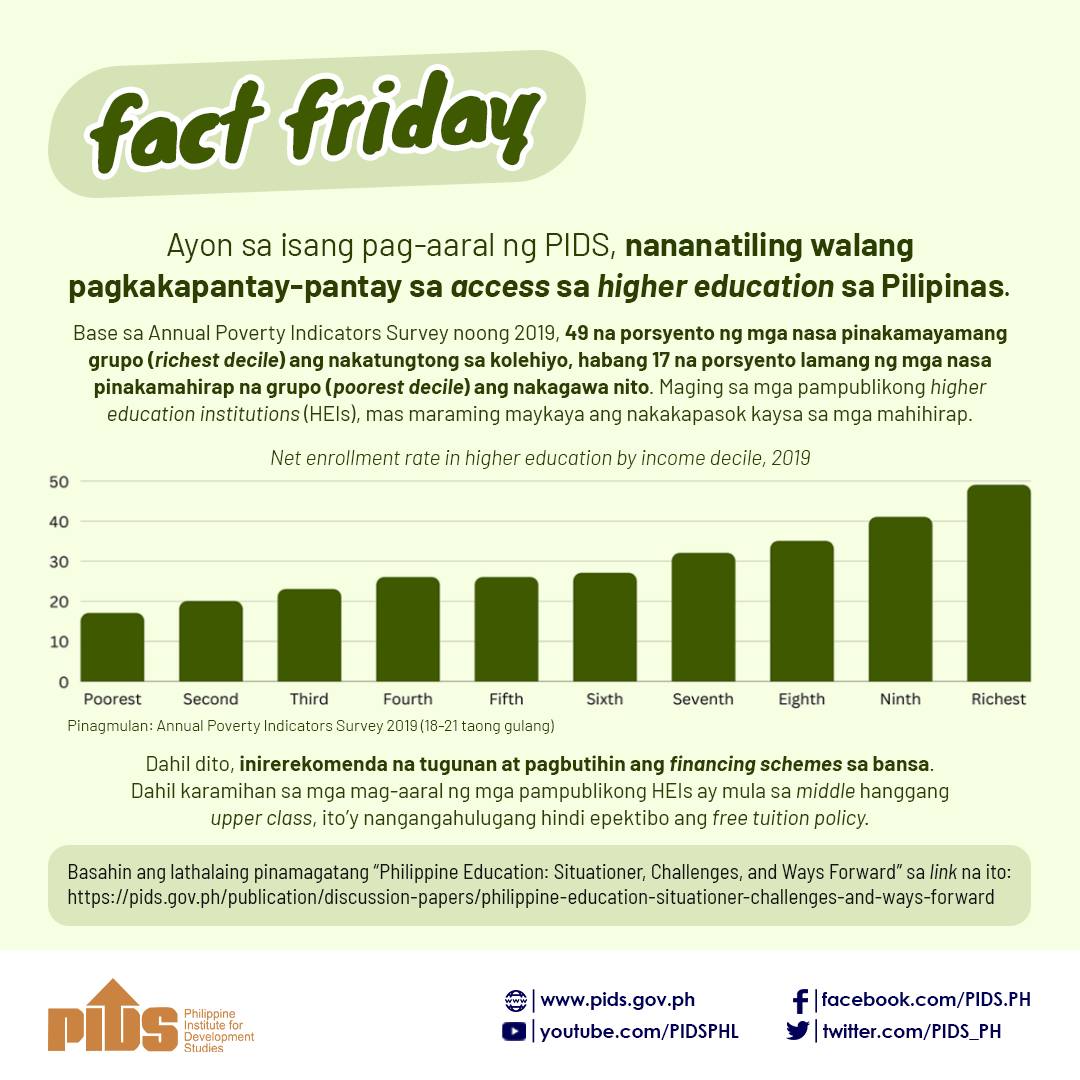The government should review the impact of tax reforms on financial transactions, the Philippine Institute for Development Studies (PIDS) said, warning that higher taxes could discourage investments.
In a policy note titled “Taxation in financial services under Train,” the state think tank noted that tax rates under the Tax Reform for Acceleration and Inclusion law had significantly increased.
Such increases, particularly for documentary stamp taxes (DST) — levied on banking documents, instruments, loan agreements and papers — may be acceptable in single transactions, the PIDS said
From a business standpoint, however, the cost of completing a transaction or delivering their service has already doubled, it claimed.
In particular, the PIDS said higher taxes had increased friction costs — the total direct and indirect costs associated with the execution of a financial transaction.
In the banking industry alone, it said that taxes — particularly DST — had gone up by as much as 100 percent.
“Higher DST means costlier financial transactions in the country. It is charged to each transaction and increases transaction costs and is thus viewed as a friction cost which could discourage investors or inhibit the flow of trade,” it explained.
With this, the agency recommended a careful analysis of the imposition of taxes on financial services to prevent “unintended consequences.”
“While taxes are meant to raise funds for the government to pump prime the economy, they may also serve as discouragement to investors and businesses,” it said.
The PIDS also cautioned that investors and businesses could instead turn to the Philippines’ Association of Southeast Asian Nations neighbors.
“The threshold for participants in the market should be determined to test their preference for Philippine financial services,” it noted.












